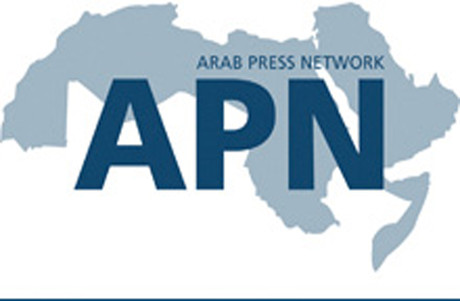In stark contrast to previous missions, the delegation of seven IFEX-TMG member groups was able to meet and talk openly with civil society groups, human rights activists, journalists, bloggers and representatives from across the political spectrum. The work of the IFEX-TMG in consistently raising freedom of expression issues both inside Tunisia and on the international stage during the country's darkest years was widely praised, while opinions on how the transition process is unfolding were freely given.
"Threats to freedom of expression and other fundamental human rights in Tunisia did not disappear on 14 January," said Virginie Jouan, representing the World Association of Newspapers and News Publishers (WAN-IFRA), the mission's leader. "Guaranteeing and protecting those essential rights in this extraordinary phase of democratic transition, and especially ahead of the 24 July elections, is absolutely critical. Plural voices ought to be heard and informed debates undertaken so that the people of Tunisia can continue to effectively engage and shape their own futures."
The delegation, which included representatives from the World Association of Community Radio Broadcasters (AMARC), the Arab Network for Human Rights Information (ANHRI), ARTICLE 19, Index On Censorship, Norwegian PEN, the Writers in Prison Committee - PEN International and WAN-IFRA, was told how some of the old threats regarding censorship and disinformation are still very much present. A notable difference since 14 January sees Tunisians making full use of their newfound freedoms to publicly denounce such challenges.
As part of a project that was launched in January 2010, the current phase of the IFEX-TMG programme focusing on censorship is conducted in partnership with the Tunis-based Observatoire pour la liberté de presse, d'édition et de création (OLPEC). In exploring what has changed for the better with regards to censorship, particularly since previous mission reports highlighted the devastating effects of the former regime's repressive stranglehold on all aspects of society, the seven member groups of the IFEX-TMG mission have been able to identify changes needed to improve the freedom of expression situation in Tunisia.
The IFEX-TMG mission members have highlighted a series of concerns that require immediate attention if the transition to a representative democratic society is to achieve fundamental freedom of expression rights:
• The lingering effects of the former regime are having a negative effect on the transition process across many areas of society, and in particular the media.
• The media is under-prepared to meet the extraordinary demands presented by this transitional period.
• The National Independent Authority for Information and Communication (NARIC) lacks the resources needed to fulfill its role as an effective consultative body.
• NARIC should be supported in developing clear guidelines and processes to ensure the allocation of broadcasting licenses for operators that have the potential to contribute to pluralism and diversity.
• There is an immediate need for transitional measures to increase pluralism and diversity in the broadcasting landscape in the run up to elections.
• There should be broad and transparent consultation with stakeholders before the adoption of any media legislation.
• Tunisian journalists require support in their ongoing efforts to strengthen professional skills and standards, particularly in view of the forthcoming elections.
• Civil society organisations require capacity building in order to continue playing a leading role in the transition process and beyond.
• While welcoming steps to remove censorship of the Internet, more work is needed to bring to an end the system of centralised control of Internet infrastructure.
A full report from the April mission, including comprehensive recommendations, will be launched at the IFEX General Meeting in Beirut on 1 June, with releases in Tunis and internationally. Throughout the mission, the delegation reinforced on behalf of the entire IFEX-TMG its lasting commitment to Tunisia and stressed that cooperation between national and international supporters of free expression remains as important as ever in this crucial transitional period.
For more on IFEX-TMG, visit http://ifex.org/tunisia/tmg/ or find IFEX-TMG at http://www.facebook.com/IFEXTMG and on Twitter @TunisiaMonitor
IFEX-TMG Member Organisations:
Arabic Network for Human Rights Information
ARTICLE 19: Global Campaign for Free Expression
Bahrain Center for Human Rights
Cairo Institute for Human Rights Studies
Canadian Journalists for Free Expression
Cartoonists Rights Network International
Egyptian Organization for Human Rights
Index on Censorship
International Federation of Journalists
International Federation of Library Associations and Institutions
International Press Institute
International Publishers Association
Journaliste en danger
Maharat Foundation (Skills Foundation)
Media Institute of Southern Africa
Norwegian PEN
World Association of Community Radio Broadcasters
World Association of Newspapers and News Publishers
World Press Freedom Committee
Writers in Prison Committee, PEN International







